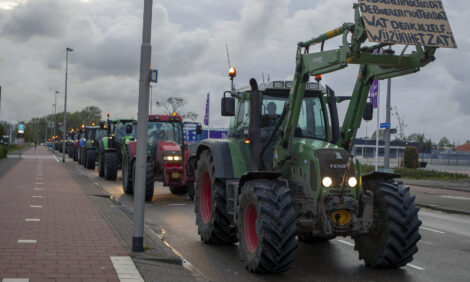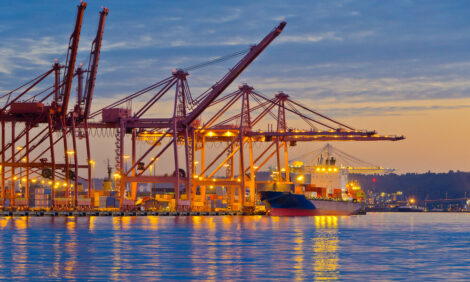



Growth Set to Challenge Dutch Agri Sector
NETHERLANDS - Between now and 2025, agricultural production in the Netherlands will be confronted by environmental limits, particularly with regard to the disposal of manure. Nevertheless, the prospects for this highly productive sector are favourable.Extra value can be created through processing, logistics and distribution and there are also opportunities for setting up food production elsewhere. The prospects for the plant-based sectors for the coming fifteen years are more favourable than for livestock farming. This was LEI's conclusion in the study In perspectief; Over de toekomst van de Nederlandse agrosector (In perspective; The future of the Dutch agricultural sector).
A shift is likely to take place within the agricultural sector in the coming years; there will be more added value and employment in arable farming, greenhouse horticulture and open-field cultivation. Livestock farming will decline in importance. This is due to the more favourable price movements for the plant-based sectors. The growth of livestock farming will also be limited by the high costs of manure disposal. However, land-based livestock farming will still be the most important sub-sector within the agricultural sector in 2025 (beef cattle, sheep, goats, the dairy industry, cattle slaughterhouses).
Share of agricultural sector in the economy declining
The share of agricultural production in the provision of employment and in added value within the Dutch economy has been steadily declining in recent years, down to around 10 per cent in 2009. While the sector itself did grow, the rest of the economy grew at a faster rate. Calculations carried out by LEI demonstrate that the importance of agricultural production will have declined further by 2025, down to a share of around 8.5 per cent in added value and employment. The processing and logistical links in the chain are set to grow, while the importance of the primary and supplying links will decline.
Fewer pigs in 2025
The expectation for the Dutch dairy sector is that there will be fewer cows in 2025 but that they will be producing more milk. However, this is accompanied by a risk, namely that there will be little support within society for a further intensification of dairy farming.
Globally speaking, a good price development is expected for poultry farming thanks to a strong increase in consumption. Moreover, poultry meat and eggs have a relatively favourable ecological footprint compared with other types of meat and with dairy, primarily due to the very efficient use of feed.
Meanwhile, the number of pig farms is expected to have halved by 2025 (in relation to 2009). Correspondingly, the pig population will have shrunk by up to 20 per cent. The causes of this are the low margins combined with the high costs of welfare and environmental measures.
Shifts in arable farming and the internationalisation of horticulture
In 2025, the Netherlands will be growing fewer potatoes and more grain. If the sugar quotas are abolished, the country will also be producing more sugar beet. One weak spot in the arable farming sector is the declining soil health and soil fertility. The area used for greenhouse horticulture is expected to remain more or less stable. New markets will be found outside Europe and these can be served either from within the Netherlands (as new storage technology creates new opportunities in this respect) or locally from satellite production sites.
Top-sector policy offers good points of contact
The Dutch cabinet has set a new business policy in motion, devoting specific attention to the top sectors of Agro & Food and Horticulture & Starting materials. The analysis contained in this prospects study show that this approach is essential for success: a strong connection between science, the industry and the government has historically always been one of the Netherlands' strengths. The study also shows that a certain amount of active management is required to overcome certain weaknesses.
Further Reading
| - | You can view the summary of the study by clicking here. |
TheCattleSite News Desk


